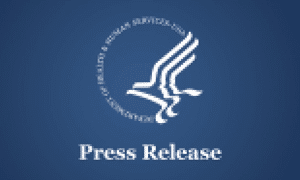Introduction
In a significant move to enhance research integrity, the U.S. Department of Health and Human Services (HHS) has finalized a new rule to strengthen the standards and processes for addressing research misconduct. This rule underscores HHS’s commitment to fostering a culture of transparency, accountability, and ethical behavior in research.
Key Changes in the Final Rule
- Enhanced Definitions and Clarifications: The new rule provides more precise definitions of research misconduct, including fabrication, falsification, and plagiarism. This refinement helps delineate the boundaries of acceptable research practices and ensures that all stakeholders have a consistent understanding of what constitutes misconduct.
- Strengthened Procedures for Handling Allegations: The rule introduces more rigorous procedures for investigating and handling allegations of research misconduct. It emphasizes the need for timely and thorough investigations while ensuring that all parties’ rights are protected. These procedures include safeguarding the confidentiality of whistleblowers and ensuring fair treatment for those accused of misconduct.
- Increased Transparency and Reporting: The rule requires institutions to report findings of research misconduct more comprehensively, promoting transparency. Reported findings should detail the actions taken and the outcomes of investigations. Increased reporting helps to build public trust and ensures that research misconduct is addressed in an open and accountable manner.
- Institutional Responsibilities and Training: The rule places greater responsibility on research institutions to implement robust policies and procedures for detecting and addressing misconduct. These include providing training for researchers on ethical practices and misconduct prevention. Institutions must now demonstrate effective mechanisms to handle research integrity issues.
- Focus on Preventive Measures: A significant emphasis of the new rule is on preventive measures. By promoting a culture of integrity through education and training, the rule aims to reduce the incidence of misconduct before it occurs. This proactive approach helps to foster an environment where ethical research practices are the norm.
Impact on the Research Community
The final rule marks a pivotal step toward reinforcing the credibility of research conducted under HHS funding. By enhancing the mechanisms for addressing misconduct and promoting a culture of integrity, the rule aims to ensure that research outcomes are reliable, ethical, and conducted honestly.
Researchers, institutions, and funding agencies will need to familiarize themselves with the new requirements and adapt their practices accordingly. This includes updating institutional policies, training programs, and reporting procedures to align with the latest standards.
Looking Ahead
As the research community adjusts to the finalized rule, ongoing vigilance and commitment to ethical practices will be crucial. The HHS’s emphasis on integrity and transparency reminds us of the importance of maintaining high standards in research. By adhering to these new guidelines, the research community can continue to advance scientific knowledge while upholding the public’s trust and confidence.
Please refer to the official HHS press release for more detailed information on the final rule, including specific provisions and implementation timelines.







